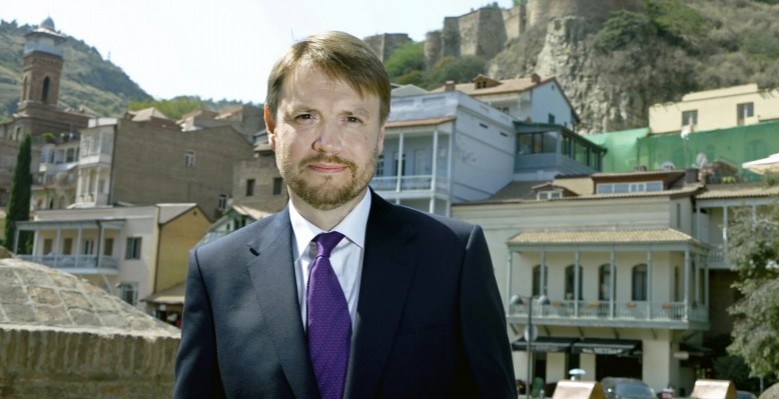I arrived in Georgia five weeks ago. I am gradually getting to know this unique country. I was energised by brilliant young students I met on their way to study in Britain. I have tried delicious, modern food inspired by ancient traditions. I have seen an autumn sunset in Kakheti. And, yes, I have sat in traffic on [Chavchavadze Avenue]. Small steps, but I am getting there.
I feel lucky to have arrived in the midst of an important election campaign. It has been a crash-course in Georgia’s politics. Talking to friends, colleagues and politicians from different parties is helping me to understand which issues matter most to voters.
Quite a few issues are similar to the UK. Jobs, education, health and the economy are at the top of most British voters’ list of priorities, just as they are in Georgia. Other issues are specific to Georgia’s recent history and experience.
Elections are a huge logistical challenge. In Britain, general elections have taken place for more than 300 years and we are still trying to improve them. Take a look at the Electoral Commission’s report on the 2015 UK general election and you will see there are 13 recommendations for the conduct of future elections. Democracy is a living thing. Technology is opening up new possibilities. Tamar Zhvania, Chairperson of CEC told me about several innovations brought in for this election in Georgia. We can learn a lot from each other.
Almost everyone I meet says there is a growing mistrust of politics and politicians. In this respect, Georgia is like every other European country. This sense of disconnect is something we are all coming to terms with. I am lucky to have been able to vote throughout my adult life. For me, it is an emotional as well as a rational choice. Knowing that previous generations – including my grandparents – fought to defend my freedom to choose how we are governed is a powerful motivation. But I know the choice is not always clear. On a previous assignment, I was stunned when a close friend told me he did not vote. The state of party politics in his country was such that there was no-one he wanted to give his vote to.
I have never been in my friend’s position. But if I ever was, I think I would still vote. Not voting in an election puts at risk our freedom to choose. Often we will not get the government we want. But we exercise our right to a functioning, democratic system that allows us to elect different leaders next time. I admire the way that President Margvelashvili has travelled the country encouraging young people to vote.
I also wonder whether it is politics that makes people feel disconnected, or the political process. Two recent referendums within the UK showed high levels of engagement. In June this year, 72% of voters went to the ballot boxes to vote on Britain’s membership of the European Union. And in Scotland in 2014, 85% of the electorate took part in the referendum on independence. How do we make these levels of engagement the norm not the exception? How do we build a new politics for the 21st century? These are questions we are grappling with in Britain and in Georgia. In the meantime there is one thing we should all do. Vote.
of the European Union. And in Scotland in 2014, 85% of the electorate took part in the referendum on independence. How do we make these levels of engagement the norm not the exception? How do we build a new politics for the 21st century? These are questions we are grappling with in Britain and in Georgia. In the meantime there is one thing we should all do. Vote.
Justin McKenzie Smith
British Ambassador to Georgia
Justin McKenzie Smith was born in 1969 in Scotland. He studied in universities of Oxford and Edinburgh.
After joining the British diplomatic service in 1994, Justin worked at various positions, in London and abroad, including in Mexico, New York and Russia.
In September 2016 Justin started his term as the British Ambassador to Georgia
Justin speaks Spanish, Russian and now Georgian too.


